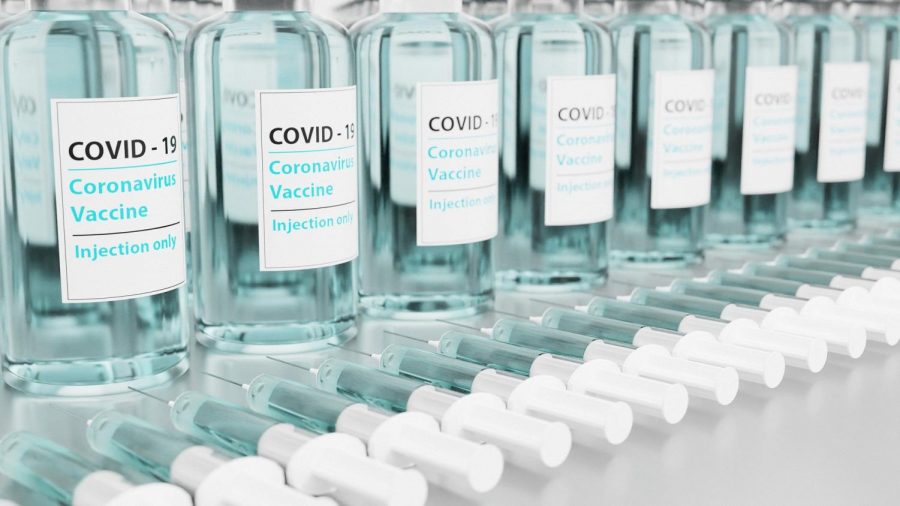U.S. continues Covid vaccine distribution
March 19, 2021
The one year anniversary of COVID-19’s “eruption” in the United States has come and gone. With the U.S. being the most powerful nation in the world, the pandemic has proved to know no boundaries. So far, 29.6 million COVID-19 cases have been reported, with a total of 536,000 deaths in all regions of the nation. The Golden state, Lone star state, and Sunshine state (California, Texas, and Florida respectively) are the leading states with COVID-19 cases.
Scientists from various parts of the world have worked hard to come up with vaccines to help stimulate people’s immune systems and protect them against this world-wide pandemic. On Dec. 11, 2020, the U.S. Food and Drug Administration issued the first emergency use authorization (EUA) for a vaccine for the prevention of Coronavirus disease 2019 (COVID-19) caused by severe acute respiratory syndrome Coronavirus 2 (SARS-CoV-2) in individuals 16 years of age and older.
Vaccination to prevent the spread of the virus has been one of the top agendas in President Joe Biden’s new administration. Some of the vaccines manufactured already are Pfizer-BioNTech (95% effective), Moderna (94.1% effective), and Johnson & Johnson/Janssen (66.3% effective). It takes two weeks after vaccination for the body to build protection (immunity) against what causes the virus. Each state is handling vaccinations differently. Some vaccinate based on age, others according to occupation, and other states, “when you are ready, come get it!”
There have been multiple ideologies and concerns about safety of the COVID-19 vaccinations. Some believe that it is necessary to get vaccinated and get back to “normal America” while others are skeptical about the ingredients of these vaccines. It has some people thinking, “Why has the COVID-19 vaccine been found very fast (less than a year) and other vaccines for diseases like cancer and HIV have not been found yet?” Some are also concerned about the vaccines because of the side effects encountered such as tiredness, nausea, muscle pain, fever, and swelling of the injection site.
Some of the general public questions are such as, “If I get vaccinated, can I stop wearing a mask? Can I still get COVID-19?” A person could still get COVID-19 before or just after vaccination and then get sick because the vaccine did not have enough time to provide protection. The Centers for Disease Control and Prevention (CDC) advises that the vaccinated people should continue taking all necessary precautions like wearing masks and social distancing because they can get COVID-19 again and be carriers of the virus. Experts also recommend that those who had COVID-19 and recovered, they should be vaccinated too because it is unknown how long a person is protected from getting sick again.

